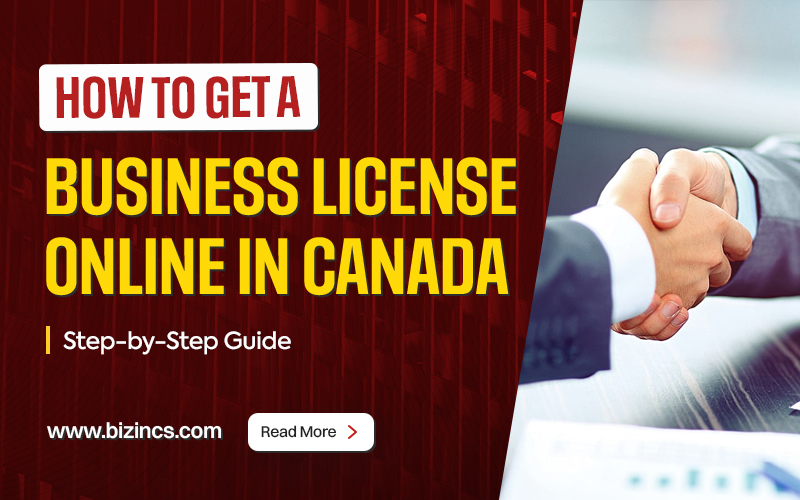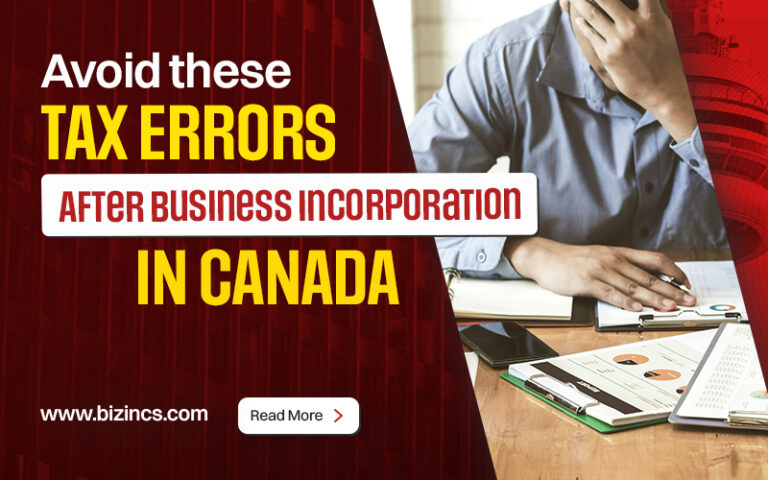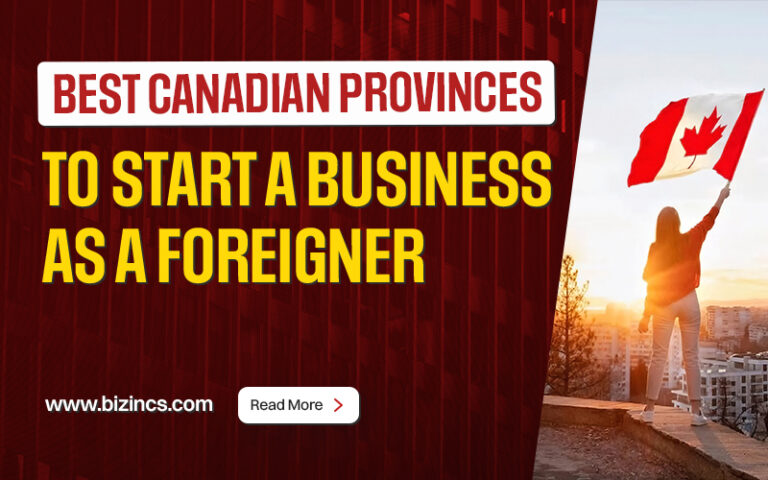How to Get a Business License Online in Canada (Step-by-Step Guide)
A business license is a document issued by a government authority that grants a business owner the permission to operate in a specific location in Canada. The types of permits and licenses you need depend on several factors, including your business structure, the industry you’re in, and your specific location.
For example, a master business license ontario canada might be required for a certain type of business in that province, while a different business license BC canada would be needed for the same type of business in British Columbia.
Key Aspects of Business Licenses in Canada
- Multiple Levels of Government: You may need licenses from various levels of government, including federal, provincial, territorial, and municipal. This means that a single business might need several licenses and permits to be fully compliant.
- Industry-Specific Requirements: Certain industries have stricter regulations and require specific permits. For instance, businesses dealing with food, alcohol, or firearms will have additional requirements.
- BizPaL: The Government of Canada provides a free online tool called BizPaL. It helps business owners determine which licenses and permits are necessary for their specific business based on location and industry. This can be a useful tool when you’re starting the business license application process.
- Consequences of Non-Compliance: Operating without the proper licenses can lead to fines or even the forced shutdown of your business. This is why it’s a critical step in setting up a new business.
Related: Best Canadian Provinces To Start A Business As A Foreigner
Process of Getting Business License in Canada
The process for getting a business license in Canada can vary depending on your business type and location, but a general procedure involves these steps:
- Choose a Business Structure: Decide whether your business will be a sole proprietorship, partnership, or corporation. This decision will impact the licenses and permits you need and your business license application process.
- Choose a Business Name: Select a name for your business and ensure it’s available. You may need to reserve it, especially if you are incorporating.
- Compile Required Documents: Gather documents such as a business description, corporate records, ownership structure, and financial statements. You may also need to show proof of insurance or educational qualifications.
- Register or Incorporate: Register your business with the appropriate provincial or territorial government. For corporations, you will need to prepare Articles of Incorporation.
- Apply for Licenses and Permits: Apply for the necessary federal, provincial, territorial, and municipal licenses and permits. You can use a service like BizPaL to help you find all the required licenses and permits based on your business structure, location, and industry.
- Pay Fees and Await Approval: Pay any associated fees and wait for your business license to be processed and approved.
- Renewing Business License: Remember to keep track of renewal requirements to ensure your business remains compliant.
Business License Varies as Per Province in Canada
A business license in Canada can vary significantly by province, territory, and even by municipality. This is because licenses and permits are issued at three levels of government: federal, provincial/territorial, and municipal.
Each province and territory has its own specific set of regulations and requirements for businesses operating within their jurisdiction. For example, the requirements for a business license ontario canada will be different from those for a business license bc canada. Similarly, you’d find distinct requirements for a business license manitoba.
While it is not possible to create a single table that covers all the different types of licenses and permits for every Canadian province and territory, I can provide a general overview of the varying requirements and costs. The specific requirements depend heavily on the business structure, industry, and location.
The information below highlights some key differences in the business license application process across various provinces:
| Province/Territory | Key Distinctions in Requirements | Example Costs |
| Ontario | Must register with the Ontario Business Registry. Requires an Ontario-biased NUANS name search report for corporations. | Sole Proprietorship: ~$60 Business Corporation: ~$300 |
| British Columbia | Has specific requirements for extra-provincial registration if you are incorporated in another province. The City of Vancouver has its own fee structure. | Business Incorporation Fee: ~$350 City of Vancouver Annual Fee: ~$100 – $250+ (varies by business type) |
| Alberta | The government provides a range of specific business licenses for different industries (e.g., direct sellers, home inspectors). | Business Incorporation Fee: ~$450 |
| Quebec | Has its own business registry and does not use the NUANS name search system. There is a reciprocal agreement with Ontario for corporations. | Incorporation Fee: ~$326 |
| Manitoba | Requires a provincial direct sellers/vendors license for door-to-door sales. | Business Name Registration: ~$300 Government Registration Fee: ~$300 |
Important Considerations
- Municipal Licenses: In addition to provincial requirements, many cities and municipalities have their own business license and zoning regulations. For example, the City of Vancouver has an annual license fee that varies by business type.
- Federal Requirements: Businesses must also meet federal requirements, such as obtaining a Business Number (BN) and registering for a GST/HST account if your revenue exceeds certain thresholds.
- BizPaL: A valuable tool for finding the specific licenses and permits for your business is the free online service, BizPaL. It helps you filter requirements from all three levels of government based on your location and industry.
Federal Incorporation
- Online filing: ~$200
- Other methods (e.g., mail): ~$250
- NUANS name search report (required): ~$13.80
Provincial/Territorial Business Registration & Incorporation Fees
| Province/Territory | Sole Proprietorship/Partnership | Corporation | Notes |
| Alberta | Varies by municipality (e.g., City of Airdrie: ~$162 for home-based, ~$495 for non-resident) | ~$450 government fee + service provider fees. A name approval fee of ~$30 may apply. | Alberta uses authorized service providers for many registry services. |
| British Columbia | Varies by municipality (e.g., City of Vancouver: ~$74 one-time application fee + annual fee starting around ~$100-$250) | ~$350 for filing articles of incorporation + ~$30 for name approval. | Some municipalities have separate license requirements and fees. |
| Manitoba | ~$60 (valid for 3 years) | ~$350 government fee + name reservation fee (~$45) and service fees. | A name reservation is required. |
| New Brunswick | Varies | ~$290 (includes a ~$260 government fee and ~$30 name search report) | |
| Newfoundland and Labrador | Varies | ~$300 for incorporation + ~$300 for a name search report. | |
| Nova Scotia | Varies | ~$200 for incorporation + ~$70 for a name search report. Annual registration renewal fee is ~$108.62. | |
| Ontario | ~$60 (valid for 5 years) | ~$300 for online filing or ~$360 for in-person/mail filing. | An Ontario-biased NUANS name search report is required. |
| Prince Edward Island | Varies | ~$255 (includes government fee and name search report) | |
| Quebec | ~$35 for sole proprietorships; ~$53 for partnerships | ~$326 for declaration of registration + ~$22 for name reservation. | The cost for a for-profit company is ~$337, or ~$505.50 for expedited service. |
| Saskatchewan | Varies | ~$265 for incorporation + ~$60 for a search report. | |
| Yukon | Varies | ~$345 (includes the government charge and a corporation name search fee) |
Additional Costs to Consider
- Professional Services: Many businesses hire a lawyer or accountant to help with the registration process, which can add hundreds to thousands of dollars in fees.
- Renewals: Most provincial and municipal licenses have an annual or multi-year renewal fee.
- Specific Permits: Depending on the industry (e.g., food service, construction), you may need to apply for additional permits, each with its own fee.
- Extra-Provincial Registration: If a federally incorporated business operates in more than one province, it will need to pay an extra-provincial registration fee in each additional province.
- Name Search: While some provinces include the name search fee in the total cost, many charge a separate, non-refundable fee for this step.
Note: Pricing mentioned in this Blog is Approx, for accurate pricing and services click here.
Conclusion
Getting a business license in Canada can feel overwhelming. But if you follow the steps and use tools like BizPaL, the process becomes simpler. Each license matters because it keeps your business legal and safe from penalties. Stay compliant, renew on time, and you’ll build a strong base for growth.
Need help with the process? Bizincs makes business registration in Canada simple, fast, and stress-free.







